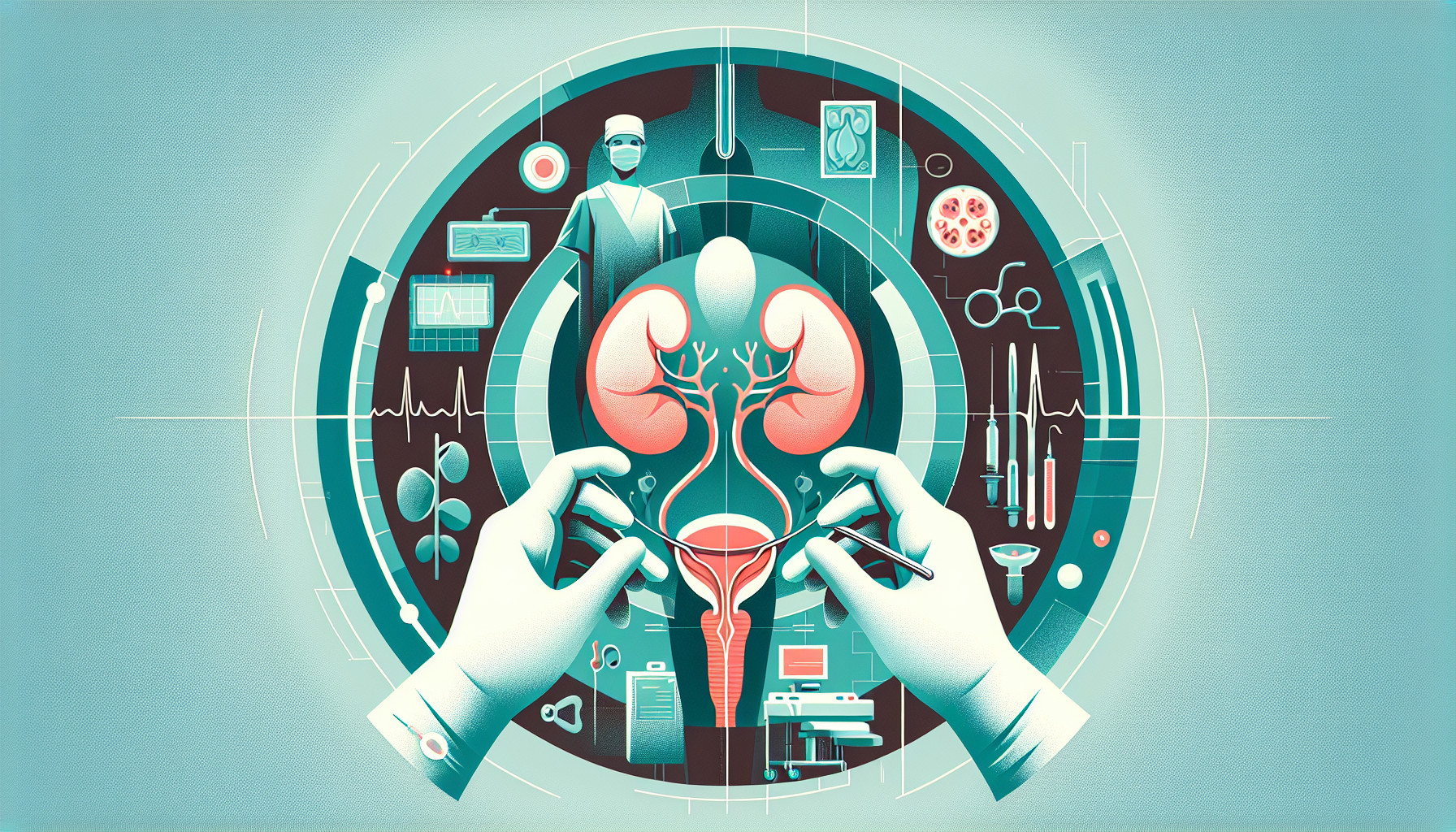Our Summary
This research paper appears to discuss a medical topic related to the diagnosis and surgical treatment of endometriosis in the bladder. The method of surgery discussed is robotic laparoendoscopic, which is a minimally invasive procedure performed with the help of a robot. The paper likely explores the benefits, risks, and outcomes of this surgical approach for endometriosis in the bladder. However, without an abstract or more information, it’s hard to provide a more detailed summary.
FAQs
- What is endometriosis in relation to bladder surgery?
- What is robotic laparoendoscopic surgery for the bladder?
- How is diagnosis conducted before a bladder surgery?
Doctor’s Tip
After bladder surgery, it’s important to stay hydrated and drink plenty of water to help flush out any remaining anesthesia and prevent urinary tract infections. Additionally, follow your doctor’s instructions for post-operative care, including taking any prescribed medications and avoiding heavy lifting or strenuous activities until you have fully recovered. It’s also important to attend any follow-up appointments to monitor your progress and address any concerns.
Suitable For
Patients who are typically recommended bladder surgery include those with:
Bladder cancer: Patients with bladder cancer may need surgery to remove the tumor or part of the bladder.
Bladder stones: Patients with large bladder stones that cannot be passed through the urine may require surgery to remove them.
Urinary incontinence: Patients with severe urinary incontinence that does not improve with other treatments may benefit from surgery to correct the issue.
Interstitial cystitis: Patients with interstitial cystitis, a chronic bladder condition causing pain and discomfort, may be recommended surgery as a last resort treatment option.
Bladder outlet obstruction: Patients with a blockage or narrowing of the bladder outlet may require surgery to improve urine flow.
Bladder prolapse: Patients with a prolapsed bladder, where the bladder drops into the vagina, may need surgery to reposition the bladder.
Bladder diverticulum: Patients with a bladder diverticulum, a pouch-like bulge in the bladder wall, may require surgery to remove the diverticulum and improve bladder function.
It is important for patients to discuss their individual medical history and condition with their healthcare provider to determine if bladder surgery is the best treatment option for them.
Timeline
Before bladder surgery:
- Patient consults with a healthcare provider about symptoms such as frequent urination, pain during urination, or blood in the urine.
- Healthcare provider orders diagnostic tests such as a urinalysis, ultrasound, or cystoscopy to determine the cause of the symptoms.
- Based on the results of the diagnostic tests, the healthcare provider recommends bladder surgery to treat conditions such as bladder cancer, urinary incontinence, or interstitial cystitis.
- The patient undergoes pre-operative evaluations, including blood tests, imaging studies, and a physical examination, to ensure they are healthy enough for surgery.
- The patient receives instructions on how to prepare for the surgery, including fasting before the procedure and stopping certain medications.
After bladder surgery:
- The patient wakes up in the recovery room and may experience pain, discomfort, or nausea.
- The patient is monitored closely for any complications, such as bleeding, infection, or difficulty urinating.
- The patient receives pain medication and instructions on how to care for the surgical incisions.
- The patient may need to stay in the hospital for a few days for observation and to receive IV fluids.
- The patient is discharged from the hospital and instructed on how to manage pain, prevent infections, and gradually resume normal activities.
- The patient follows up with their healthcare provider for post-operative appointments to ensure they are healing properly and to address any concerns or complications.
What to Ask Your Doctor
- What type of bladder surgery do you recommend for my condition?
- What are the potential risks and complications associated with this surgery?
- What is the expected recovery time following the surgery?
- Will I need to make any lifestyle changes or modifications after the surgery?
- How long will the effects of the surgery last?
- Are there any alternative treatment options to consider before proceeding with surgery?
- How experienced are you in performing this type of bladder surgery?
- What should I expect during the surgery and the immediate post-operative period?
- Will I need to follow up with you or another healthcare provider after the surgery?
- Are there any specific instructions or precautions I should follow before and after the surgery?
Reference
Authors: Wei Y, Su J, Zhu Q, Guan Q. Journal: Asian J Surg. 2021 Apr;44(4):700-701. doi: 10.1016/j.asjsur.2021.01.006. Epub 2021 Feb 9. PMID: 33579607
